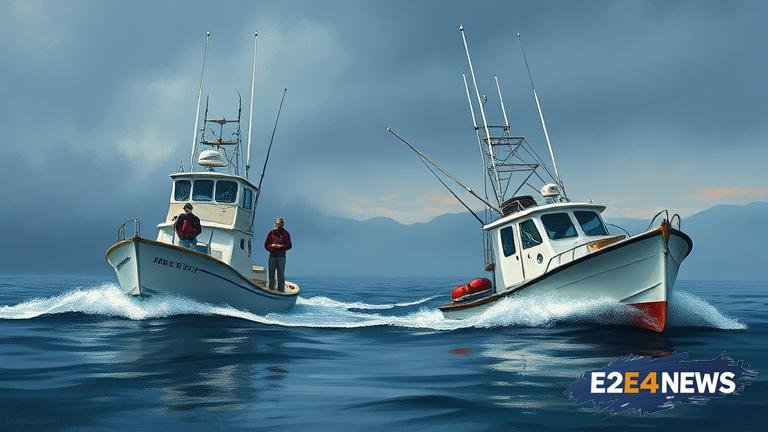The state of Maine has been rocked by a string of tragic fishing accidents in recent months, resulting in the loss of several lives. These incidents have served as a stark reminder of the dangers and risks associated with commercial fishing, prompting a renewed emphasis on safety training and emergency preparedness within the fishing community. The US Coast Guard has been at the forefront of these efforts, working closely with fishermen, lobstermen, and other stakeholders to promote a culture of safety and responsible fishing practices. One of the key areas of focus has been on the importance of proper safety equipment and emergency procedures, including the use of life rafts, emergency beacons, and survival suits. Fishermen and lobstermen are being encouraged to take proactive steps to ensure their vessels are seaworthy and that they are adequately prepared for emergencies. This includes regular safety drills, vessel inspections, and training on the use of safety equipment. The US Coast Guard has also been conducting regular safety inspections and providing guidance on best practices for fishermen and lobstermen. In addition to these efforts, there has been a growing recognition of the need for mental health support and resources within the fishing community. The loss of a fellow fisherman or lobsterman can have a profound impact on those left behind, and it is essential that these individuals have access to counseling and other support services. The Maine fishing community has come together to support the families of those who have lost their lives, with many fishermen and lobstermen sharing their own stories of survival and resilience. These stories serve as a powerful reminder of the importance of safety training and emergency preparedness, and they are helping to raise awareness about the risks and challenges associated with commercial fishing. The US Coast Guard has also been working to promote a culture of safety and responsible fishing practices through its public outreach and education efforts. This includes participating in fishing industry events, providing safety training and resources, and conducting regular safety inspections. Furthermore, the Coast Guard has been collaborating with other organizations and stakeholders to develop and implement new safety initiatives and programs. These efforts are helping to reduce the risk of accidents and fatalities within the fishing community, and they are promoting a safer and more responsible fishing industry. The recent tragedies in Maine have also highlighted the importance of remembrance and tribute, with many fishermen and lobstermen coming together to honor the memories of their fallen colleagues. These tributes serve as a powerful reminder of the sacrifices and risks associated with commercial fishing, and they are helping to promote a sense of community and solidarity within the fishing industry. In conclusion, the recent fishing deaths in Maine have led to a renewed focus on safety training and emergency preparedness within the fishing community. The US Coast Guard has been playing a key role in these efforts, working closely with fishermen, lobstermen, and other stakeholders to promote a culture of safety and responsible fishing practices. By prioritizing safety training and emergency preparedness, the fishing community can reduce the risk of accidents and fatalities, and promote a safer and more responsible fishing industry. The importance of mental health support and resources, as well as remembrance and tribute, must also not be overlooked, as these are essential components of a comprehensive approach to safety and well-being within the fishing community.
